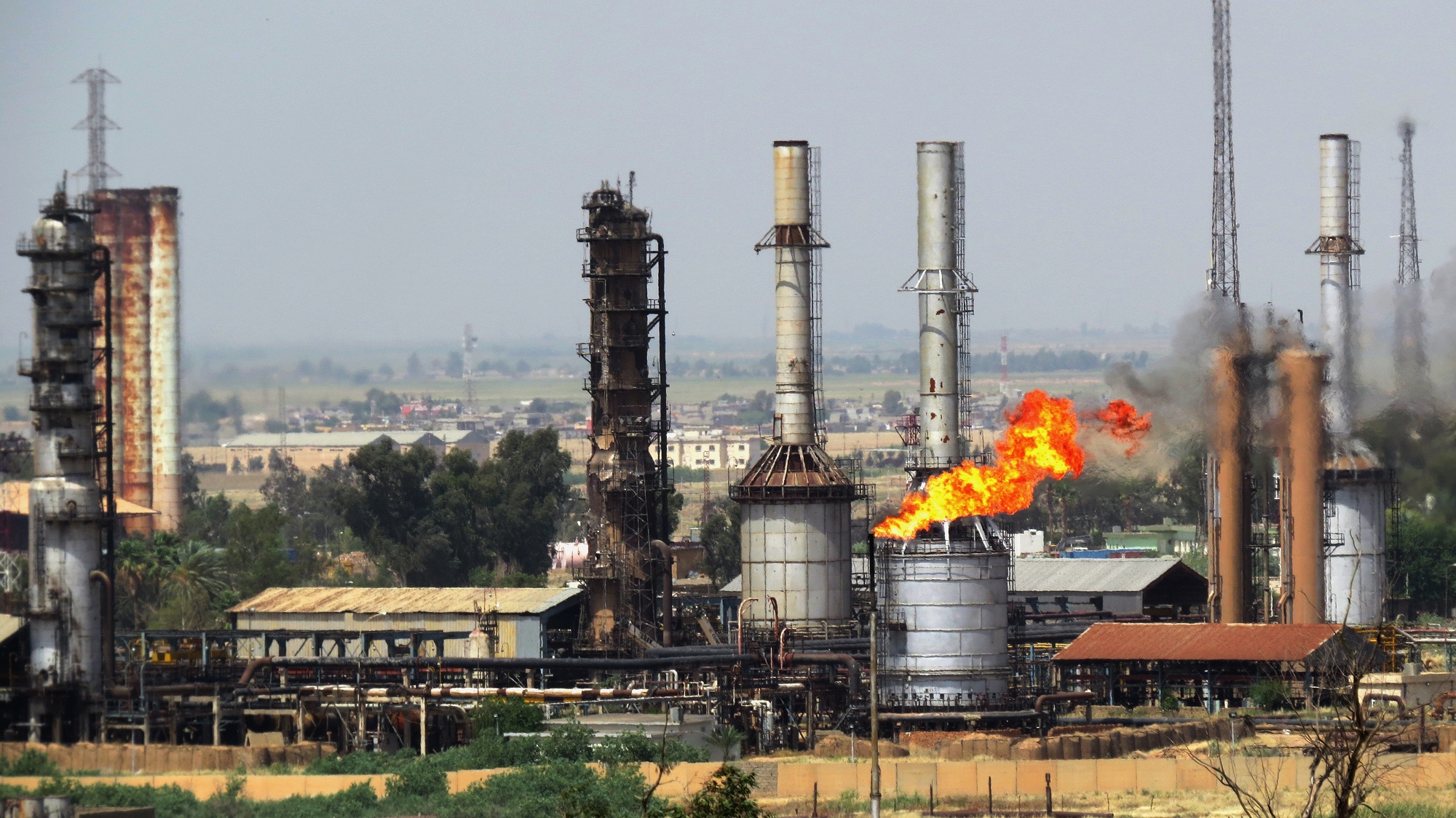Kirkuk's crude oil exports to Turkey were zero last month due to the suspension of exports through the Kurdistan Regional Government (KRG) oil pipeline to Ceyhan port of Turkey.
According to the Oil Ministry, crude oil exports from the country's fields reached 98,634,947 barrels in April 2023, earning more than 7.b billion American Dollars USD.
Iraqi crude was trading at more than $79 a barrel.
According to the statistics of the Iraqi Ministry of Oil and the State Oil Marketing Organization SOMO for March 2023, the total exports of crude oil from all of Iraq's oil fields amounted to 100,913,027 barrels, with revenues estimated at more than $7.4 billion.
The average price per barrel of Iraqi crude oil last month was 73 $/pb.
In April, there were no exports from Kirkuk oil fields to Turkey, while in March hit over 1.7 million barrels only, half of last February exports, while its revenues exceeded $126 million.
The Oil Ministry also did not release any statistics on Kirkuk oil exports to Jordan by tanker in April.
Kirkuk crude oil is exported daily through the KRG oil pipeline to Turkey, which has been suspended since March 25, 2023, following a decision of the International Court of Arbitration in Paris against Turkey.
Iraq's complaint is over disputes between Baghdad and Erbil over the production and export of crude oil, which has been pending for years.
On April 4, 2023, the two governments signed an agreement to resume oil exports through the KRG pipeline to Turkey until the approval of the oil and gas law, but exports have not been yet resumed.
"Oil exports will resume in the coming days," Oil Minister Hayan Abdul Ghani told the semi-official Iraqia television channel late last month, adding that the federal government was in the final stages of implementing its agreement with the Kurdistan Region.
The Northern oil rich city of Kirkuk has exported over three million barrels of crude oil last February, generating over $235 million American Dollars USD, statement by Iraqi oil ministry.
Crude oil exports from the Kirkuk fields through pipelines and tanks during the last year exceeded 29.5 million barrels, with revenues exceeding $2.8 billion.
There are five main crude oil producing fields in Kirkuk province; Avana, Bay Hassan, Baba Dome, Jambur and Khabaza, under the control of the Iraqi Government’s North Oil Company.
Kirkuk, Iraq’s second largest reserves, located 238 kilometers north of Baghdad, is an ethnically mixed province for 1,7 million Arabs, Kurds and Turkmens. It has long been at the center of disputed territories between Baghdad and the Erbil.





